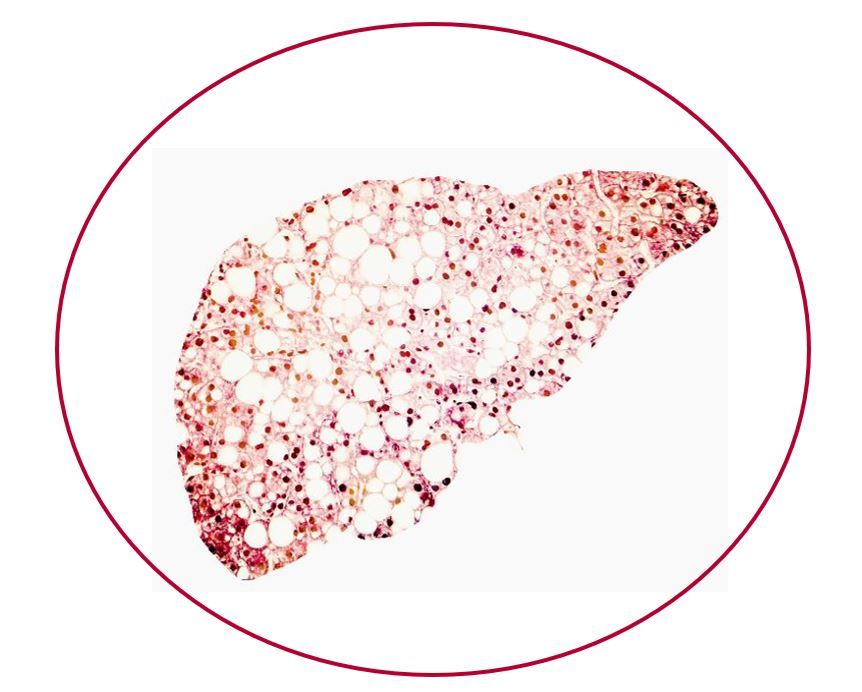- Clinical Technology
- Adult Immunization
- Hepatology
- Pediatric Immunization
- Screening
- Psychiatry
- Allergy
- Women's Health
- Cardiology
- Pediatrics
- Dermatology
- Endocrinology
- Pain Management
- Gastroenterology
- Infectious Disease
- Obesity Medicine
- Rheumatology
- Nephrology
- Neurology
- Pulmonology
In Adults with NAFLD and Severe Obesity, Bariatric Surgery Significantly Reduces Cancer Risk
Study authors looked for the first time at the impact of bariatric surgery on incidence of all-cause and obesity-related cancer in patients with severe obesity and fatty liver disease.
Bariatric surgery significantly reduces the risk of cancer in individuals with severe obesity and nonalcoholic fatty liver disease (NAFLD), according to a study published recently in the journal Gastroenterology.
The reduction in risk is even more pronounced in individuals with NAFLD-associated cirrhosis, according to researchers from Rutgers Robert Wood Johnson Medical School’s Center for Liver Diseases and Liver Masses.
In a press release from Rutgers University, lead author Vinod K Rustgi, MD, professor of medicine, clinical director of hepatology and director of the Center for Liver Diseases and Liver Masses, explained that cancers associated with obesity have been observed for some time but there has been no research into whether weight loss actually diminishes that risk.
©Kateryna_Kon/stock.adobe.com

To investigate the authors conducted a longitudinal retrospective cohort analysis using anonymous claims data from a nationwide insurance database. The study sample included 18- to 64-year-old participants with at least one documented inpatient admission or outpatient service diagnosis for both NAFLD and severe obesity (BMI ≥40 kg/m2) between 2007 and 2017. The 2 primary outcomes measured were incident diagnoses of 1) any cancer and 2) obesity-related cancer.
Of more than 2 million participants with a NAFLD diagnosis, 98 090 met inclusion and exclusion criteria. A total of 34 438 bariatric surgeries was performed in adults with NAFLD without a history of cancer; of those, 97% had BMI ≥40 kg/m2. Mean follow up for all participants was 22.42 months with 31.07 and 17.95 months of follow-up for the surgery and no surgery group, respectively.
Results
- Bariatric surgery was associated with lower incidence rates for both any cancer and obesity-related cancer. The crude rate ratio of any cancer was 0.84 (95% CI: 0.77 to 0.91) for patients with surgery relative to those with no surgery.
- The cumulative incidences of any cancer and obesity-related cancer were lower for patients who underwent bariatric surgery than for those who did not.
- Twelve months after the index date, the adjusted risks of any cancer and obesity-related cancer in the surgery group were 1.28% (95% CI: 1.17% to 1.39%) and 0.38% (95% CI: 0.32% to 0.44%), respectively, and 1.56% (95% CI: 1.45% to 1.67%) and 0.58% (95% CI: 0.52% to 0.65%) in the no surgery group.
- Among NAFLD patients who underwent bariatric surgery, unadjusted and adjusted hazard ratios (HR) for both any cancer and obesity-related cancer were lower vs those who did not undergo surgery.
- In NAFLD patients, the adjusted risk of any cancer was 18% lower in patients with vs without surgery (HR 0.82; 95% CI: 0.75 to 0.89).
- In NAFLD patients, the magnitude of risk reduction associated with bariatric surgery was increased when analysis was limited to obesity-related cancer: the adjusted risk for surgery relative to no surgery patients was reduced by 35% (HR 0.65; 95% CI: 0.56 to 0.75).
The study results offer practical insight for clinicians and building blocks for future studies on the connection between NAFLD and cancer, said Rustgi, in the press release.
“Understanding the connection between NAFLD and cancer may identify new targets and treatments, such as antidiabetic-, satiety-, or GLP-1-based medications, for chemoprevention in NAFLD/NASH. Though bariatric surgery is a more aggressive approach than lifestyle modifications, surgery may provide additional benefits, such as improved quality of life and decreased long-term healthcare costs,” concluded the researchers in the Rutgers statement.
